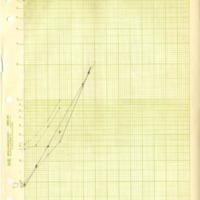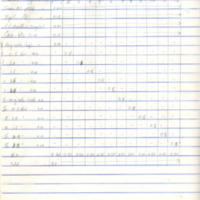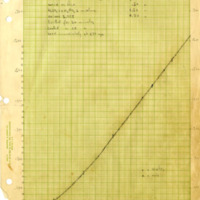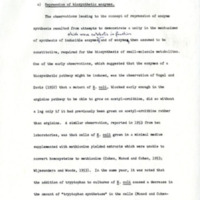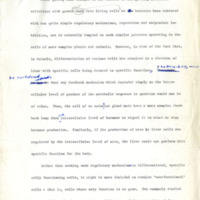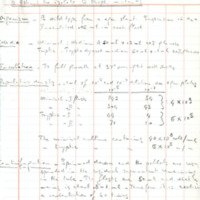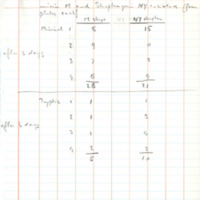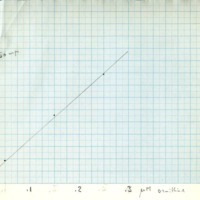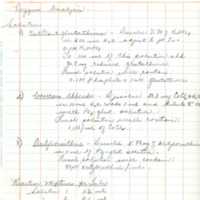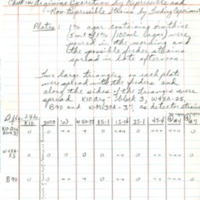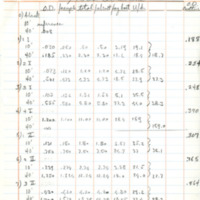Luigi Gorini
Luigi Gorini (1903-1976), University of Pavia, Italy, was the American Cancer Society Professor, Department of Microbiology and Molecular Genetics, Harvard Medical School, Boston, Massachusetts. Gorini was known for his research in the physiology of proteolysis, bacterial and gene expression regulation, bacterial ribosomes, and the influence of ribosomal mutations.
Luigi Gorini was born on 13 November 1903 in Milan, Italy, and attended the University of Pavia, Italy, for his undergraduate and graduate education. He completed his thesis in organic chemistry, but focused in his graduate studies on biology. His studies were cut short in 1931 by the rise of the fascist state. After the rise of Mussolini, Gorini returned to Milan, where he was a researcher at the Instituto Giuliana Ronzoni from 1942 to 1945. During this time, Gorini was involved with the resistance movement, and after the liberation of Milan on 25 April 1945, he and wife Annamaria Torriani-Gorini (1919-2013), a fellow scientist and eventually Professor of Biology at the Massachusetts Institute of Technology, created a rehabilitation center for Jewish children, bringing them back to health and preparing them to immigrate to Israel.
After the war, Gorini became the head of the Department of Biochemistry at the Instituto Scientifico di Chimica e Biochimica Giuliana Ronzoni in 1946, a role he held until immigrating to Paris, France, in 1949. There, he worked in the laboratory of Claude Fromageot in the Laboratory of Biological Chemistry at the National Center for Scientific Research at the Sorbonne, Paris, from 1949 to 1951; in 1951, Gorini was named the Head of Research in this laboratory and the Master of Research in 1954. He was a Visiting Researcher in the Department of Pharmacology of the College of Medicine at New York University, New York, from 1955 to 1957. In that year, he began teaching as a Lecturer in the Department of Bacteriology and Immunology, Harvard Medical School, Boston, Massachusetts. He became the American Cancer Society Associate Professor in this Department in 1962, and acted as the American Cancer Society Professor, Department of Microbiology and Molecular Genetics from this time until his retirement in 1974. He remained at Professor Emeritus until his death on 13 August 1976.
Gorini’s laboratory research early in his career related to aspects of bacterial proteolysis and the biochemistry of extracellular enzymes. His work on the physiology of proteolysis led to the discovery of an unusual growth factor, catechol, in 1954. Working with Werner Maas (1921-), Gorini recognized the way bacterial enzymes affect bacterial regulation, which in turn altered modes of thought about the regulation of gene expression and led to the development of the concept of the gene repressor. Once at Harvard Medical School, Gorini’s research focus was primarily on the arginine pathway and the influence of ribosomal mutations. With Eva Kataja, Gorini also studied bacterial ribosomes and the effect of streptomycin. He published more than 100 scientific articles, writing up until his death, and was a member of numerous professional organizations. For his research, was given the award for Advancement in Organic Chemistry at the Politecnico of Milan, Italy, in 1927; the Kronauer Prize from the Faculté des Sciences, Sorbonne, 1949; and the Harvard University Ledlie Prize in 1965.
The materials below display research processes and data from Gorini's studies of regulation and metabolism in bacteria, as well as drafts of papers written by Gorini and peers based on related research projects.

